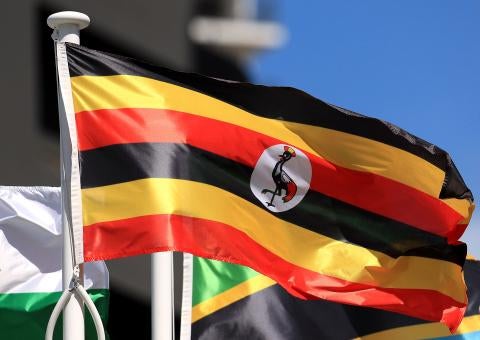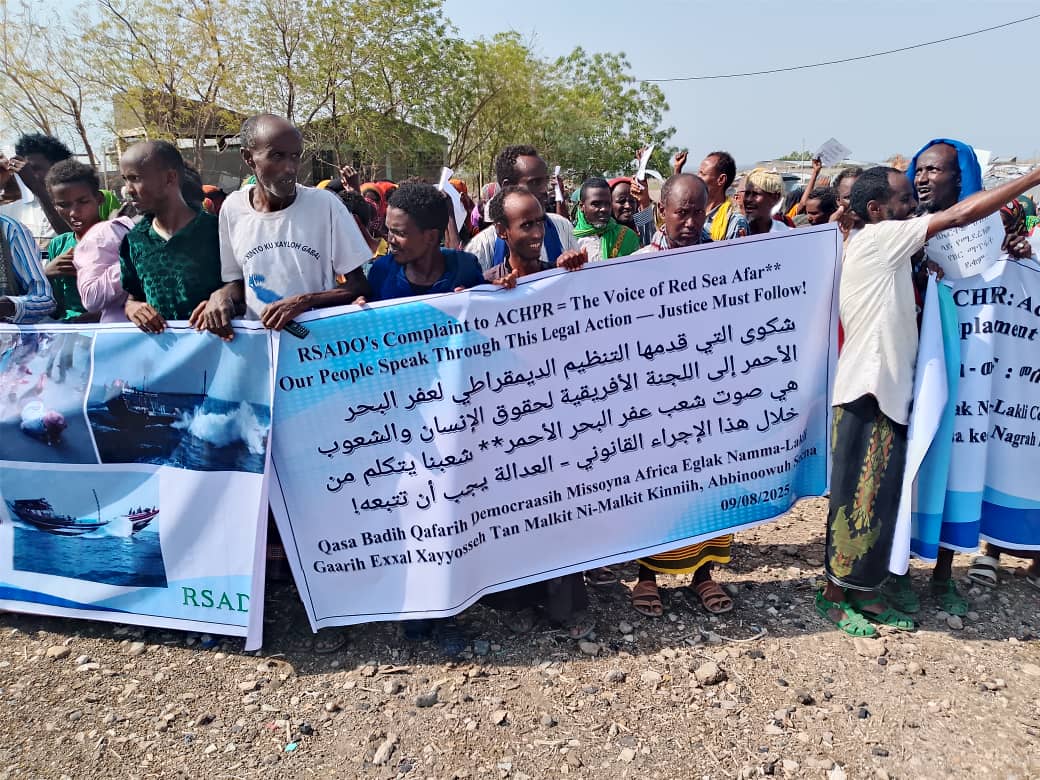By TESFA-ALEM TEKLE
The Red Sea Afar Democratic Organization (RSADO), an Eritrean political and armed opposition group representing the Afar people in Eritrea, has issued a grave warning to the international community, calling Eritrea’s government not only a domestic oppressor but a “regional menace and a global disgrace.”
In a statement RSADO shared to The East African Daily, the group has launched a powerful appeal demanding immediate international action to address ongoing atrocities against the Afar people in Eritrea’s southern Red Sea region.
In its latest statement, RSADO called upon the United Nations (UN), African Union (AU), European Union (EU), Intergovernmental Authority on Development (IGAD), and other international actors to implement targeted sanctions against Eritrean officials and military commanders.
It also urged the freezing of assets and the imposition of travel bans on state-owned enterprises believed to fund repressive measures.
The organization further demanded the referral of Eritrea’s case to the International Criminal Court (ICC) and the establishment of an independent international commission of inquiry to investigate allegations of genocide, crimes against humanity, and ethnic cleansing specifically targeting the Afar ethnic group.
“The Afar people are not asking for sympathy, rather demand justice, protection, and self-determination as guaranteed under international law. Every day that passes without action is another day lost to death, cultural erasure, and irreversible devastation,” the RSADO statement read.
Background: A Brutal History of Repression
Eritrea, under the leadership of President Isaias Afwerki since independence in 1993, has long been regarded as one of the most repressive regimes in the world.
The country operates as a de facto one-party state with no independent media, no elections since independence, and widespread reports of forced conscription, indefinite military service, and systematic human rights abuses.
The Afar people, an indigenous ethnic group living in the strategic southern Red Sea region near the border with Djibouti and Ethiopia, have suffered disproportionately.
According to human rights groups, the Afar people have faced displacement, land confiscation, economic marginalization, and targeted violence at the hands of the Eritrean military and state-aligned militias.
The Afar region is not only ethnically unique but geopolitically vital.
Its proximity to major maritime trade routes makes it a focal point for Eritrea’s military and economic interests, including its controversial use of ports for foreign military bases and alleged trafficking networks.
Critics argue that the state has aggressively pursued control over this region by systematically repressing its native inhabitants.
Regional Implications
RSADO’s appeal also underscores the regional spillover risks of Eritrea’s internal policies.
Eritrea has long been accused of destabilizing neighboring countries, notably through its military involvement in the Tigray War in Ethiopia, its border tensions with Djibouti, and support for insurgent groups in the Horn of Africa.
While the peace accord signed between Eritrea and Ethiopia in 2018 raised hopes of reform and reintegration into the international community, Eritrea has instead become further entrenched in authoritarianism, showing little to no domestic liberalization.
Its continued militarization and opaque governance model have frustrated even its once-hopeful allies.
International Response: A Deafening Silence?
Despite multiple UN reports accusing Eritrea of crimes against humanity—including torture, sexual slavery, and forced labor—the global response has remained largely tepid.
Sanctions imposed by the UN Security Council in 2009 were lifted in 2018 following the peace deal with Ethiopia, a move many observers now consider premature.
While the U.S. and EU have implemented limited sanctions targeting Eritrean officials over their role in the Tigray conflict, no concrete international mechanisms currently exist to address the specific plight of the Afar people or to hold the Eritrean government accountable for internal repression.
RSADO’s call for a renewed diplomatic isolation of the regime, alongside international legal and economic pressure, aims to refocus global attention on the ongoing suffering of the Afar population, who have few channels of redress inside Eritrea.
A Plea for Justice and Self-Determination
RSADO insists its demands are grounded in international law, specifically referencing the UN Charter, the African Charter on Human and Peoples’ Rights, and other covenants that guarantee minority rights, protection from genocide, and the right to self-determination.
The group is not merely seeking punitive measures against Eritrean leaders, but also positive support for Afar communities, including humanitarian aid, human rights monitoring, and international recognition of their struggle for justice and autonomy.
Conclusion
The Horn of Africa is once again on the cusp of wider instability, and Eritrea’s repressive tactics and militaristic ambitions are increasingly seen as a central threat to regional peace and security.
The Afar people’s ongoing suffering is a tragic but telling example of the international community’s failure to act decisively on credible reports of atrocity crimes.
As RSADO starkly puts it:
“The world must act not tomorrow, not next year, but now.”



